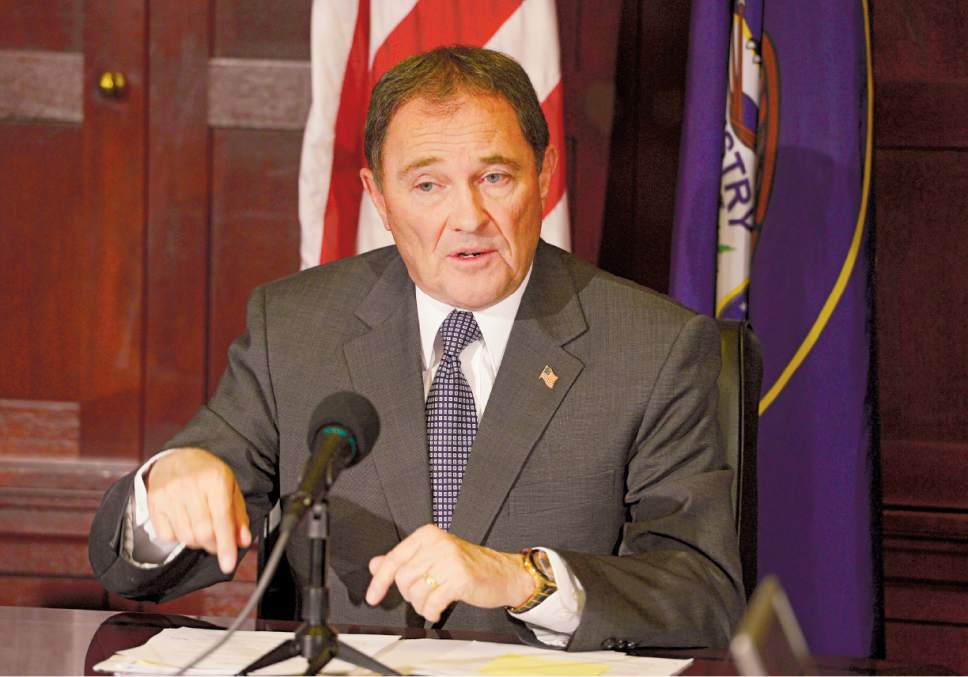This is an archived article that was published on sltrib.com in 2017, and information in the article may be outdated. It is provided only for personal research purposes and may not be reprinted.
Gov. Gary Herbert, a Republican if ever there was one, has gone to some pains to do the few Democrats and many unaffiliated voters of Utah a big favor. It is a gesture that should be reciprocated.
The governor vetoed House Bill 11. That was the measure that would have removed the cap on the number of members of one political party who can be members of various state boards and commissions. If the bill became law, it would have allowed bodies such as the Air Quality Board, Water Quality Board, Alcoholic Beverage Control Commission and several lesser-known government panels to be mostly, or all, one party. In Utah, that means mostly, or all, Republicans.
But if the veto sticks, as it should, Herbert is left with the same problem he had before — finding enough people to fill out the various panels without going back to the same old Republican well.
Utahns who are of a public-spirited bent, but who may feel left out because they aren't Republicans, now owe Herbert an active kind of thanks. It's time for more Democrats and, especially, more of the large and growing pool of unaffiliated voters, to step up and volunteer for those positions.
It is a way to serve your community in a way that avoids many of the downsides of running for office. No tying yourself down to a political party. No caucuses. No conventions. No spending untold hours humiliating yourself by asking everyone you meet for money.
Just study, consideration, long public hearings and, oh, yes, making a lot of people mad at you.
The first step can be a visit to a page on the governor's website: https://boards.utah.gov/.
Herbert needs and deserves this favor from the people he has refused to close out of the process.
The limit on Republicans, combined with the fact that the law mandates that some boards include people with special expertise or links to particular professions, had left Herbert feeling at a loss to fill all the open seats. So the original idea behind HB11 was actually his.
But Democrats objected, and Herbert came to see that if big and unavoidably political decisions were made by bodies that were so tilted to one side, those choices would lose legitimacy in the public's eye. He agreed to a deal that would have maintained the party cap on some of the more meaningful bodies, including Air Quality, Water Quality and DABC.
Meanwhile, back in the legislative sausage grinder, the bill reverted to its original form, removing the cap on every board, and passed the Legislature that way. Herbert, rightly loathe to go back on the deal he had made, vetoed it.
Herbert stepped up on this one. Now a lot of other folks need to do the same thing.



